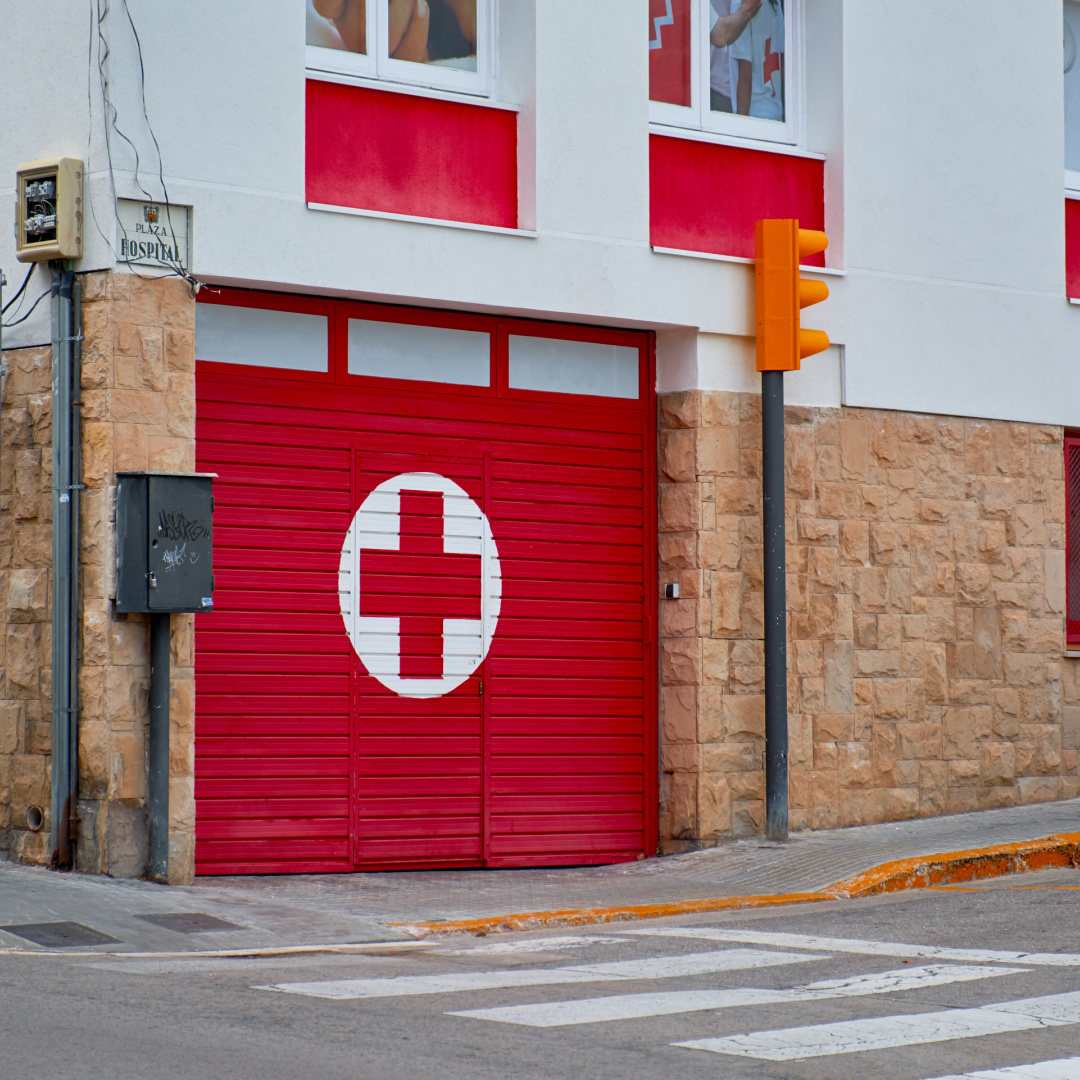It can be frightening when you are traveling and you or your family/friends get sick. It’s bad enough when you are in the United States, but what if you are outside the country and something happens?
It was a great day until it wasn’t

My husband, I, and several friends were in Spain for vacation. Bill and I went out for a wonderful bike ride and stopped at a local café for lunch. We enjoyed a salad and shared a bowl of mussels. It was a lovely day until it wasn’t.
Later that evening my husband got violently ill, most likely a bad case of food poisoning. I was fine. We shared the mussels, but we each had our own salad. As the evening progressed into night, he got worse and worse. Luckily, several of our traveling friends were doctors. We did an inventory of drugs we all had brought and found the best antibiotics that would likely help.
Do I stay or do I go

Over the next four days, the group continued with their excursions, but I stayed behind. I was terrified that he would fall down the stone staircase as he was so weak. My fear was that I would find him at the bottom of the stairs when we arrived home. Thus I stayed behind and provided nursing care, which was greatly appreciated.
I never thought about an emergency number I would need to call until he got ill. Spain’s emergency number is 112 I discovered. Who would have thought? The other consideration was the address we were staying. All of us had difficulty finding the house we rented, so why would we think that an ambulance could find it? If there even was an ambulance that would respond. Another consideration was how would we communicate an emergency in Spanish. Hmmm. Something to think about.
Traveling is exciting
Traveling out of the country is certainly an exciting experience. The opportunity to explore different cities and cultures and meet new people. But when the unexpected happens and you or someone you are with experiences a medical emergency, will you be ready?
A medical emergency can quickly turn your trip into a nightmare if you are not prepared.
Our first instinct is to call 911. Wait! Not all countries use 911 or have the same level of response we have come to expect in the United States.
Be prepared
Get prepared BEFORE you leave home so that if an emergency does occur you are not in a panic and have the resources you need. You never know and I’m sure you have heard too many stories.
- Carry important medical information with you. This information includes your medical history, allergies, medications you are currently taking, and emergency contact information. You want the same information as well if you are traveling in the United States.
- Do you have adequate medication in case you are delayed or need to take additional doses. Check with your healthcare provider before you leave. Don’t forget to carry your medications with you during travel and keep them in the original containers.
- Are you up to date with your immunizations? Don’t forget tetanus and any other immunizations necessary for the area you are traveling.
- Do you have travel insurance? Keep the documents handy AND know what is covered and not covered. People have been fooled into thinking they could be transported back to the United States and that option is not part of the travel insurance coverage.
- Do you have a backup copy of your passport and other important documents?
- What are the emergency numbers of the country you are visiting? Remember, every country has its own emergency number. The emergency number may not be 911, and the person on the other end of the phone may not speak English.
- Don’t delay seeking treatment because it can worsen your condition. If you are in a remote area, try to reach the nearest hospital or clinic as soon as possible.
- Know how to contact your embassy or consulate, in some instances, they can provide guidance but should not be relied upon as the first call in an emergency.
- Research the best hospitals in the area you are traveling to. Just like in the United States, different hospitals provide various levels of care. If you have a heart condition, look for a hospital that has a heart program or ask friends that may be local to the area.
In conclusion, it is important to be prepared for a medical emergency while traveling out of the country. By carrying important medical information, knowing the emergency numbers of the country you are visiting, seeking medical attention immediately, contacting your travel insurance provider and embassy or consulate, and keeping copies of important documents, you can ensure that you get the help you need in the event of a medical emergency.
It’s important to do your research in advance, just like you have planned your vacation and excursions.
References
Embassy information
911 alternatives
https://travel.state.gov/content/dam/students-abroad/pdfs/911_ABROAD.pdf
One more reminder before you leave…
- Consult your doctor if you need to manage a condition during your trip.
- Refill your eligible prescriptions and be sure you have enough in case your trip is longer than you think.
- Print a summary of your online medical record and the drugs you are taking in case you don’t have access to your phone or the internet.
- Make sure your immunizations are up to date, including flu/COVID vaccines.
- Know your 911 equivalent for the country you are visiting.
- Have your travel insurance handy – does it provide for medical evacuation back to the US?
- Know where your consulate or embassy is and their phone number.
- Know the address of your hotel or rental property.
- Have your emergency contact easily available to others, just in case you are separated from your traveling companions.
- Have fun! You are now prepared.
